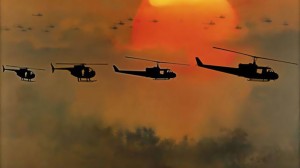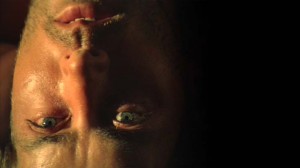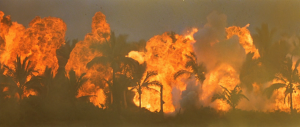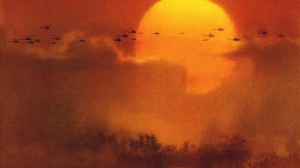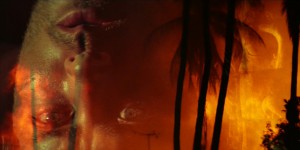Written for the catalogue of Il Cinema Ritrovato, June-July 2016. — J.R.
Apocalypse Now
Like much of Coppola’s best work -– The Conversation, the Godfather trilogy, Bram Stoker’s Dracula –- Apocalypse Now teeters on the edge of greatness, and perhaps it wouldn’t teeter at all if greatness weren’t so palpably what it was lusting after. To my mind it functions best as a series of superbly realized set pieces bracketed by a certain amount of pretentious guff, some of which could be traced back to Joseph Conrad’s novella Heart of Darkness, the movie’s point of departure, as well as some powerful voiceover narration written by Michael Herr, whose book Dispatches offered some authentic glimpses of the war from the American side. Much of the guff, I would argue, stems from the fact that Coppola never quite worked out what he wanted to say, a fact he often acknowledged at the time. Indeed, Coppola’s continuing doubt is a major element of the saga being celebrated here: the Passion of the Artist writ large, made to seem far more important than the mere suffering and deaths of a few hundred thousand nameless and faceless peasants (and American soldiers) across the South China Sea.
Coppola’s movie is nevertheless an authentic late-70s liberal statement about U.S. involvement in Vietnam and the excess it entailed. For all its shortcomings, Apocalypse Now was probably the best big-budget, big-statement American movie about the Vietnam war in the 1970s, and it’s questionable whether we’ve seen much improvement in this subgenre since. Platoon clearly is more authentic, and Full Metal Jacket at its best may conjure up more profound ideas about warfare, but neither film comes close to the total experience of insanity and sensory overload that Coppola’s movie amply furnishes. Consider the synesthesia of the opening sequence, a fever-dream of superimpositions of color and sound, where the putter of helicopters and a ceiling fan mix with sputters and splashes of yellow, orange, and red over the duller jungle tones of green and brown to compose the nightmare visions of the protagonist.
Jonathan Rosenbaum

